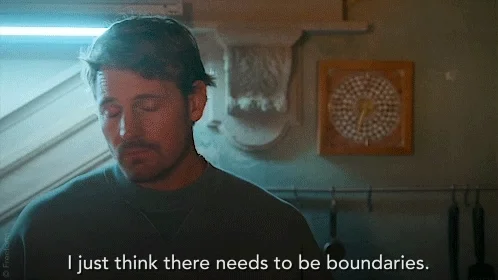
This logo isn't an ad or affiliate link. It's an organization that shares in our mission, and empowered the authors to share their insights in Byte form.
Rumie vets Bytes for compliance with our
Standards.
The organization is responsible for the completeness and reliability of the content.
Learn more
about how Rumie works with partners.
Did you think teaching was just knowing your content and classroom management?
As an 18-year teaching veteran, I've found teaching to be an incredibly rewarding profession. But it comes with challenges. Some common misconceptions about teaching add to the challenge.
Do you know what your emotional triggers are when interacting with students in stressful situations?

Do you dwell on your mistakes at the end of each day?

Learning how to manage your emotions and embrace your mistakes will help you to become more confident in yourself and your students.
Misconception #1: Teachers aren't allowed to have feelings
Before I become a teacher, I wish I'd known that certain classroom behaviors would be emotional triggers for me.

If many students weren't listening, I'd get upset and think "I'm not good enough!"
 If we recognize this mind talk (that internal conversation you have with yourself), then we can do something about it.
If we recognize this mind talk (that internal conversation you have with yourself), then we can do something about it.
Here are some strategies for teachers to deal with negative mind talk:
Exercise — creates endorphins in the body that clear your head
Journaling — writing your thoughts out is almost as good as exercise
Collaboration — working with others helps you understand that you're not alone
Quiz
Many of your students didn't pass the midterm exam. You suspect it's because they haven't been listening in class. You notice you're telling yourself, "I'm not good enough to teach this class." What can you say instead? Select all that apply.
All four are great examples of positive mind talk. We're always quick to judge ourselves as the only person responsible for failure. We do the best we can as teachers. While students are still responsible for learning the material, we can do our part by helping them improve skills like listening.
Did you know?
Misconception #2: Students will always cooperate
In a typical classroom, students are learning what the rules are and pushing them to see where the boundaries lie.

Typical rules that students break:
Not following instructions
Doing something "wrong" that wasn't intended
Talking when the teacher is talking
Learn reasons why kids break the rules.
What can you do when you start to doubt your capabilities to exert authority?
 Photo by Darius Bashar on Unsplash
Photo by Darius Bashar on UnsplashIn my experience, I found that it's best to stop and check in with myself on student behavior before taking action.
One particular student who I thought was being disruptive was actually trying to clarify something I said with another student. We forget that not every student understands what we're saying.
Quiz
You're upset after class that many of the students weren't listening. What can you do to manage this feeling in a positive way?
Exercise and journaling are two of the quickest ways to handle a bad day. Talking with someone is useful if you prompt them just to listen, summarize what was going on for you, and give you some helpful feedback.
Misconception #3: You have to be perfect at all times
You're going to make mistakes, potentially a lot of them. Here's how to deal with them:
Wait until after you get home and are alone.
Write for 15-20 minutes focusing on your deepest emotions about one mistake you made while teaching.
Warning: you may feel sad after writing, though this goes away after a few hours.

The book Opening Up by Writing it Down by James Pennebaker & Josh Smyth has more details on how to make note of your experiences. This article summarizes the book.
Forgive yourself! Without this step, you'll continue to be upset, putting you in a negative frame of mind for the next time this happens.
Take Action
Understanding yourself and what situations will trigger your emotional hot buttons will make you an outstanding teacher.
 Photo by Kenny Eliason on Unsplash
Photo by Kenny Eliason on UnsplashPractice this strategy to help make you an outstanding teacher:
This Byte has been authored by
Chris Lewis
Triathlete | EdTech | Education Product Management